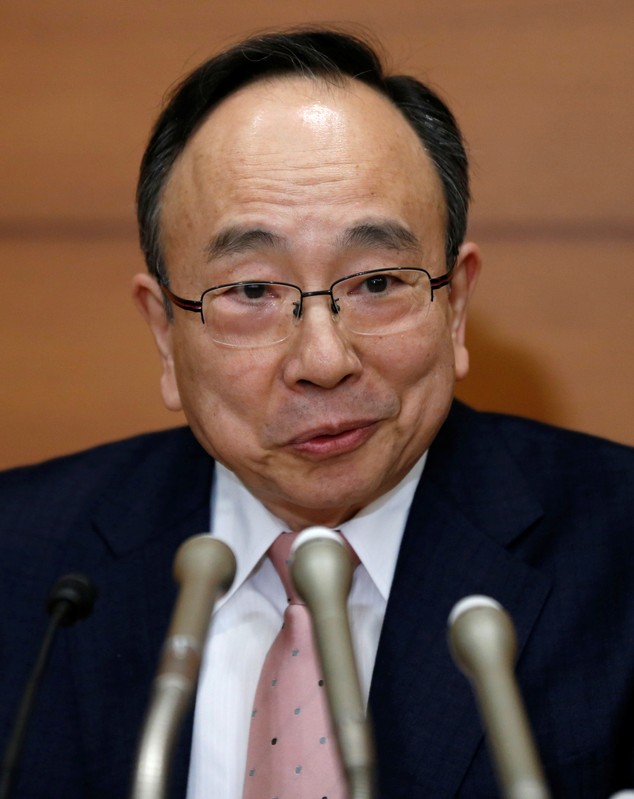
FILE PHOTO: Bank of Japan (BOJ) new Deputy Governor Masayoshi Amamiya attends his inaugural news conference at the BOJ headquarters in Tokyo, Japan, March 20, 2018. REUTERS/Toru Hanai
October 20, 2018
TOKYO (Reuters) – Bank of Japan Deputy Governor Masayoshi Amamiya said on Saturday it was doubtful whether central banks could enhance the effectiveness of their monetary policies by issuing digital currencies.
Some academics have said central banks could overcome the “zero lower bound” – a situation in which they lose tools to stimulate the economy once interest rates fall to zero – by issuing digital currencies.
In theory, digital currencies would allow central banks to more easily charge interest on deposits of households and firms, thereby nudging them to spend rather than hoard money.
Amamiya countered the idea, saying that charging interest on digital currencies would only work if central banks eliminate cash from society. Otherwise, the public will simply convert digital currencies into cash to avoid paying interest, he said.
“In order for central banks to overcome the zero lower bound on nominal interest rates, they would need to get rid of cash from society,” he said in a speech at an meeting of academics in Nagoya, central Japan.
“Getting rid of cash now is not an option for us as a central bank,” as cash is still widely used in Japan, Amamiya said, according to a text of the speech posted on the BOJ’s website.
Amamiya said the BOJ has no plan to issue digital currencies that can be widely used by the public for settlement and payment purposes.
Regulators across the world have voiced concern about the growing presence of crypto-currencies, which are not backed by any central bank because of their volatility.
Amamiya said there was “quite a high hurdle” for crypto-assets to overcome sovereign currencies – or currencies issued and backed by central banks – as the main means for payment and settlement.
“This is backed up by the fact that crypto-assets are rarely used for day-to-day payment and settlement, and are mostly a target for speculative investment,” he said.
(Reporting by Leika Kihara; Editing by Sam Holmes)

